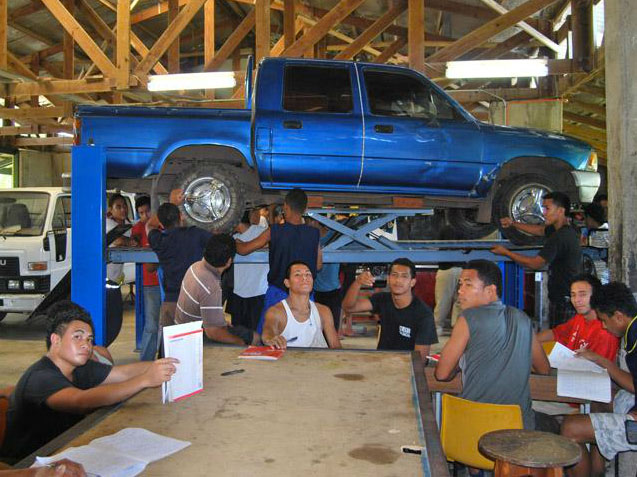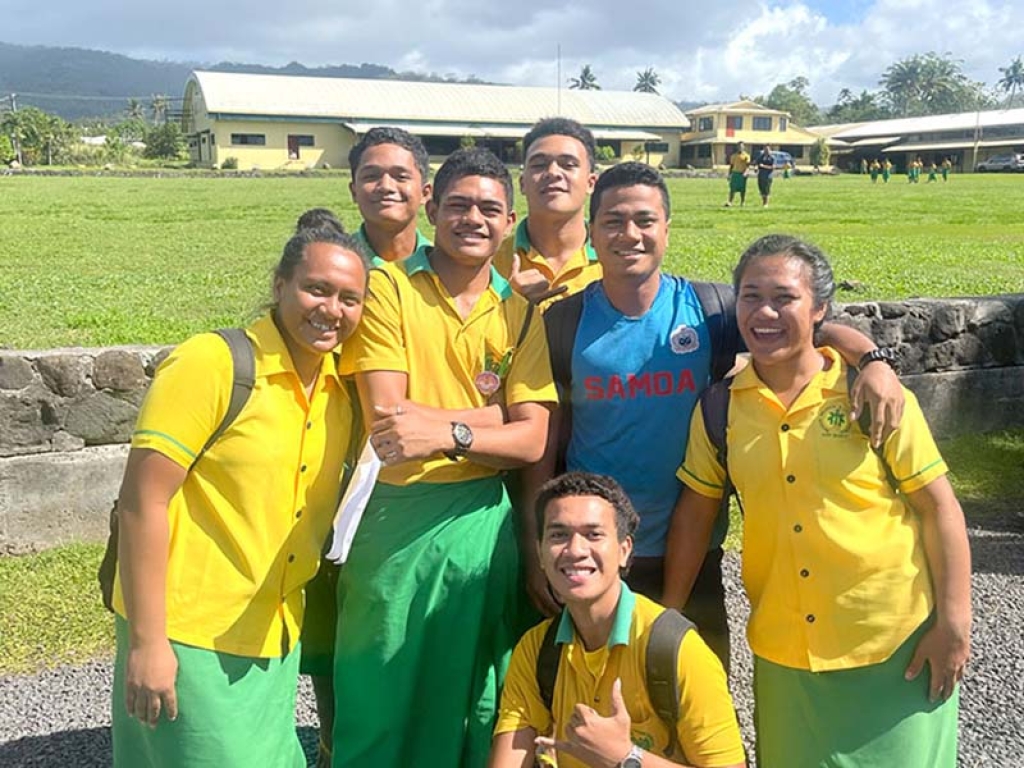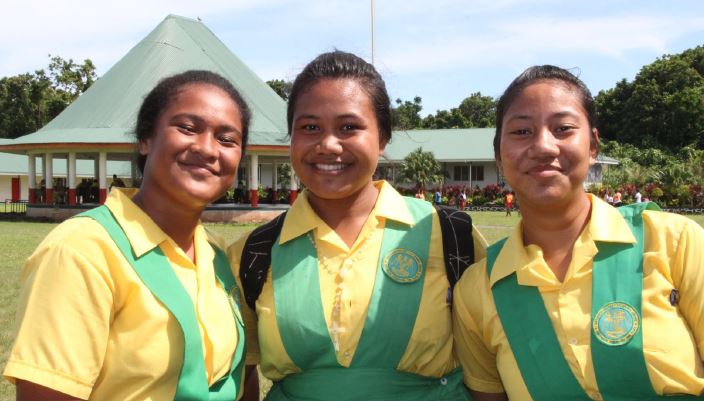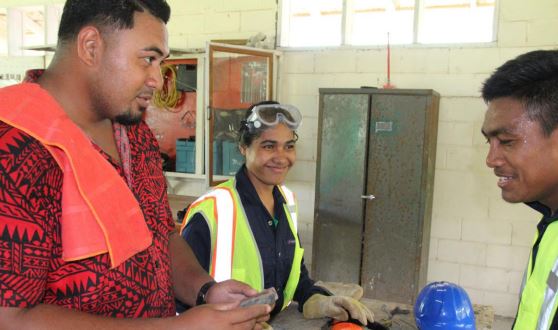SAMOA: Don Bosco Technical School Places 85 Percent of Graduates in Workforce

(MissionNewswire) Samoa boasts one of the most stable and healthy economies in the Pacific region, according to the World Bank. The poverty rate, once just over 25 percent, has dropped closer to 20 percent as the country strives to meet the UN Millennium Development Goals, a blueprint driving efforts to meet the needs of the world’s poorest.
Although Samoa has made impressive progress in social development, many rural communities in the country grapple with an unequal distribution of wealth and benefits. Poorer communities in remote parts of the islands are particularly vulnerable, especially in areas most likely to be affected by cyclones or other natural disasters. Gender inequality is apparent as women strive and often fail to find the same work and income opportunities as men and youth find it increasingly difficult to find livable wage employment in the country.
Salesian programs in Samoa are working to provide youth with an education and training as well as the necessary resources to find and keep employment. Don Bosco Technical Center in Alafua, a town just outside the capital city of Apia in the north central part of the country, provides vocational education and trade skills programs to prepare students ages 15 to 23 for employment.
“Salesian missionaries in Samoa work directly with poor and disadvantaged youth to provide hope for a positive future through education and training as well as sporting, recreational and cultural activities,” says Father Mark Hyde, executive director of Salesian Missions, the U.S. development arm of the Salesians of Don Bosco. “Salesian missionaries have established a presence in local communities allowing them to experience firsthand the issues residents face. This way, they are able to adapt their programs to meet each community’s individual needs.”
The Don Bosco Technical Center provides a second chance for close to 270 young men, many of whom have struggled to successfully complete or continue their education in mainstream schools. Both two-year and four-year training programs are offered with specialties in welding, motor mechanics, woodwork, electronics and plumbing. In addition, students study Samoan, English, mathematics, technical drawing and life skills.
Significant emphasis is placed on workshop and practical experience to help students apply skills learned in the classroom to real life work environments. Because of the quality of education provided and the lack of trained tradespeople in Samoa, more than 85 percent of graduates secure employment in the country. Some graduates have chosen to emigrate to New Zealand or Australia and have had success finding employment in those countries as well.
The center also offers sporting and recreational activities including fautasi (long-boat), games and traditional singing and dancing in addition to promoting personal development. In an effort to expand and meet the needs of students, the school plans to introduce solar electricity and complete a computer laboratory and internet facilities for staff and students.
“Salesian missionaries living and working in Samoa are able to tailor educational programs to ensure the best employment opportunities for students after they graduate,” adds Fr. Hyde. “The addition of life skills training and personal development opportunities help students make good life choices and become better employees.”
Sources
Don Bosco Technical Center Alaufa
World Bank – Samoa




